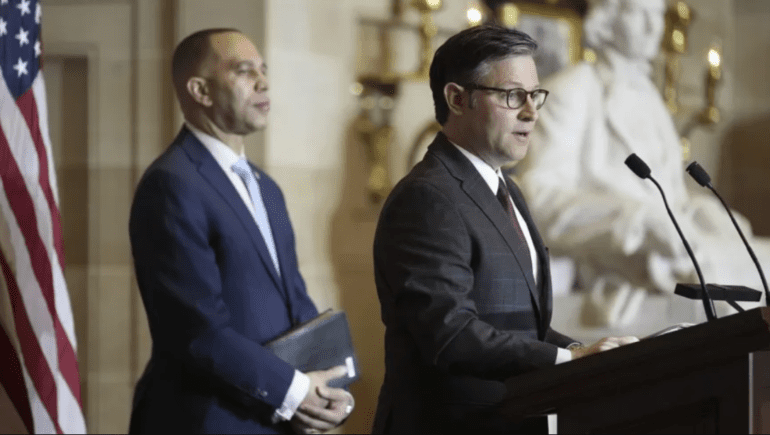TL;DR:
- The House of Representatives announced the formation of a bipartisan task force focused on artificial intelligence (AI).
- Chaired by Representatives Jay Obernolte and Ted Lieu, the task force comprises 12 members from each party.
- It aims to produce a report outlining recommendations and bipartisan policy proposals regarding AI’s future.
- The task force seeks to balance AI innovation with the establishment of necessary guardrails to address security concerns.
- Lawmakers are responding cautiously to the need for regulatory frameworks amidst growing awareness of AI’s potential risks and benefits.
- Minority Leader Hakeem Jeffries emphasizes the importance of bipartisan collaboration in safeguarding public interests.
- President Biden’s executive order underscores the urgency of addressing AI governance at the congressional level.
Main AI News:
In a significant move, the House of Representatives unveiled plans on Tuesday to establish a bipartisan task force dedicated to exploring the realms of artificial intelligence (AI). Spearheaded by Speaker Mike Johnson (R-La.) and Minority Leader Hakeem Jeffries (D-N.Y.), the initiative reflects a commitment to harnessing the potential of AI while addressing pertinent security concerns.
Comprising 12 members from each party, the task force, chaired by Reps. Jay Obernolte (R-Calif.) and Ted Lieu (D-Calif.) are tasked with producing a comprehensive report. This report will not only chart a course for future AI development but will also propose bipartisan policy measures aimed at ensuring America maintains its leadership in AI innovation.
At its core, the mission of this task force is twofold: to foster AI advancement and to establish necessary safeguards. Speaker Johnson emphasized the imperative of bipartisan collaboration in navigating the complexities of AI’s transformative impact on the economy and society. He underscored the need for Congress to proactively engage with both the promises and challenges posed by AI.
This announcement follows closely on the heels of a bipartisan commitment made by lawmakers to form a dedicated “Working Group” on AI. This group is poised to scrutinize AI’s implications across various sectors, including financial services, housing, and business operations.
Amidst mounting pressure for regulatory clarity, lawmakers have displayed a cautious approach, particularly in an election year. Despite numerous hearings and discussions exploring AI’s risks and benefits, consensus on regulatory frameworks remains elusive.
Notable engagements, such as the gathering of over 60 senators with tech industry leaders last September, underscore the urgency of regulatory action. However, discussions have often circled around without definitive steps towards regulation. This lack of consensus underscores the need for cohesive bipartisan efforts in crafting effective regulatory measures.
In light of the inherent risks associated with AI, Minority Leader Jeffries stressed the importance of establishing robust guardrails to safeguard public interests. He emphasized the necessity of bipartisan solutions to counteract the potential misuse of AI by malicious entities.
The task force comprises members with diverse expertise across relevant committees, poised to tackle AI-related challenges in a collaborative manner. Jeffries expressed optimism about the task force’s ability to address these issues in a bipartisan spirit, leveraging a wealth of collective experience.
President Biden’s executive order last October, focusing on AI governance, provides additional impetus for congressional action. As the task force takes shape, the stage is set for a concerted effort toward responsible AI innovation under bipartisan stewardship.
Conclusion:
The establishment of the bipartisan AI task force signals a proactive approach towards addressing the complexities of AI innovation. By fostering collaboration across party lines and prioritizing responsible AI development, policymakers aim to mitigate potential risks and capitalize on AI’s transformative potential in various sectors, which could foster greater trust and confidence in the market.

